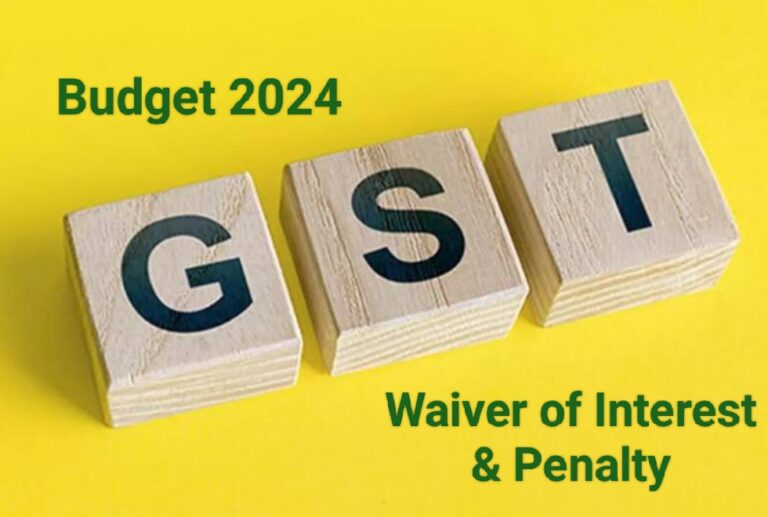The waiver applies to GST notices issued under Section 73, which pertains to non-fraudulent cases.
Budget 2024 has introduced significant relief measures in shape of waiver of interest and penalty for individuals and companies registered under the Goods and Services Tax (GST). This relief is in the form of a conditional scheme that waives interest and penalties for specified non-fraudulent GST demand notices for the financial years 2017-18 to 2019-20. This move is highly anticipated and welcomed by taxpayers, including individuals, companies, and other entities.
Eligibility for Waiver of Penalty and Interest
The relief applies to GST notices issued under Section 73, which pertains to non-fraudulent cases. The newly introduced Section 128A in the Finance Bill specifies that this waiver is available only to taxpayers assessed under Section 73 for FY 2017-18, FY 2018-19, and FY 2019-20. It excludes those assessed on grounds of fraud, wilful misrepresentation, or suppression of facts.
Fraudulent cases typically involve attempts to evade tax, suppression of information, or providing incorrect statements. Non-fraudulent notices generally arise from inadvertent errors, legal interpretation issues, or cases where there is no loss to the exchequer.
Conditions for Waiver of GST Penalty and Interest
- To qualify for the waiver, the following conditions must be met:
- GST demand notices must be issued under Section 73 for FYs 2017-18 to 2019-20.
- The GST demand amount must be paid.
- Payment of the disputed tax amount must be made by 31 March 2025.
- The waiver does not apply to cases involving erroneously sanctioned refunds and is only applicable to open cases still in appeal or under dispute.
The waiver scheme covers the following scenarios
- Notice issued but no order passed.
- Order passed by a GST Proper Officer, but no order passed by the Appellate Authority or Revisional Authority.
- Order passed by the Appellate Authority or Revisional Authority, but no order passed by the Tribunal.
- Waiver is not available in cases of erroneous refunds.
Impact of the Conditional Waiver Scheme
The amendment under Section 128A of the CGST Act offers substantial benefits to GST-registered persons, including individuals. The waiver of interest and penalties for tax disputes reduces the financial burden on taxpayers, particularly benefiting small businesses and individual taxpayers who may face cash flow issues. This provision addresses legacy issues from the initial years of GST implementation (FY 2017-18 to FY 2019-20), providing a resolution to lingering disputes without additional financial strain.
Experts believe that this amendment encourages voluntary compliance by incentivizing taxpayers to settle their outstanding tax dues for past periods. The clear conditions for availing benefits under Section 128A provide certainty and transparency, allowing taxpayers to plan their finances effectively. By focusing relief on genuine cases and excluding those involving fraud, the amendment supports compliant taxpayers and recognizes genuine issues arising from GST implementation.
However, taxpayers who have already paid their taxes and whose demand was finalized under Section 73 may not benefit from this waiver, as no refund of the amount paid will be allowed by the government.
This amendment is a significant step towards supporting genuine taxpayers and resolving longstanding GST disputes, encouraging voluntary compliance and reducing the financial burden on taxpayers.
Also Read: Amendment of GSTR-1: New GSTR-1A Form Available from August 2024 for Amendments in GSTR-1
Read More
CBIC Notification 2-2024-CTR: Amendments to Notification 1-2017-CTR
